Students should promote social justice and live a life of kindness, according to guest lecturer Dr. Kuldeep Singh who spoke at the Forum on Nov. 8.
The event was organized by English professor Jessica Hasson in the Forum. She expressed a desire to spread kindness among students.
“In higher education we should be able to talk about these issues like racial profiling, ethnic cleansing, and discrimination,” said Hasson. “Lets come together as a community in an educational format and learn, and especially learn about cultures we don’t know much about, and in that way inspire students to plant the seed of kindness.”
International Students Club sponsored the event, Raising Hands for Global Kindness. In light of recent incidents of hatred and violence in the news, Singh’s presentation offered ways to understand these events and live a peaceful life. More than 80 students from different classes attended the event that commemorated International Education Week and Sikh Awareness Month.
“The globe is a village,” said Singh. “What is happening in India… Syria, Pakistan, and Europe right now,-that will affect us. We need to be much more aware of our globe.”
Singh is the Director of Outreach and Granthi (priest) at the Nanak Sadan Sikh Temple in North Hills. Singh has lectured at universities, colleges, and interfaith councils worldwide, including in the U.K., India, Singapore, Malaysia, and the U.S.. He has traveled the world to spread his message of kindness and service.
“The messages that I deliver is like a seed,” said Singh. “It goes in their brain, in their mind. It lies there and anytime it can come out. It can give fruit to the world in multiplications, million trillion times.”
Singh spoke on how the right attitude can peacefully counter adversity. He explained global and local issues that exemplified a lack of kindness such as mass shootings, terrorism, ethnic cleansing, the treatment of refugees, and sexual misconduct.
People who may be uninformed about Sikhism, can sometimes mislabel them as Muslim. This has led to confrontations with misinformed people who may wrongly accuse them of being complicit in terrorism. According to Singh, ignorance breeds discrimination.
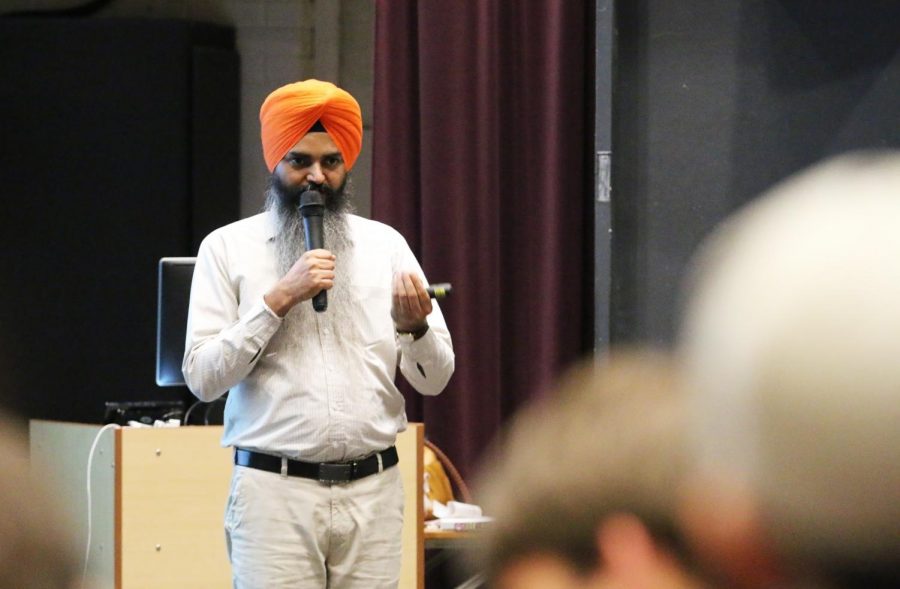
“Why is that person a terrorist, why is he so arrogant?” said Singh. “Someone has given this message to him and he kept that message. Anytime that sprout comes out. If your papa tells you every day I’m a terrorist, you will see me as a terrible person.”
Sikhism is pan-monotheistic and the world’s fifth largest religion. It is open to all human beings and respects everyone as equals. They hold principles that inform their daily lives such as earning an honest living, sharing with the less fortunate, and always remembering god. Singh stressed the Sikh concept of Jot, or a divine light in every human being.
“Divine thought, loving thought, harmonious culture travels,” said Singh. “When that travels, there will be harmony in the world, only after that. Don’t expect immediate response. It takes time. Do your duty.”
Hasson invited students to share examples of the adversity they have seen in their lives. Students such as Sabrina Shenker, 20, English major, absorbed the message of kindness from the event.
“It’s important to extend a hand to everyone around you and sympathize with them, to try to look behind their eyes,” said Shenker. “It’s important to take a while to rationalize yourself and your emotions to understand why you’re feeling the way you do so you can act your best around others and treat them the way they’re meant to be treated.”
Student Kevin Gutierrez, 21, Criminal Justice major, appreciated the notion of being kind regardless of who may be watching.
“There was a quote that if you do good outside the house and you go back inside into your house you bring honor to your family,” said Gutierrez. “A lot of people don’t think about that. Even if no one is looking, just be nice.”
When the event came to a close, Hasson asked students to sign a board pledging to be kind in their everyday lives.
Singh feels a sense of purpose from speaking to students at colleges because of the sensitivity of their minds in this setting.
He wants to make sure to spread the notion of kindness before they venture out into the world.
“The students will be our leaders and future leaders if they are good enough,” said Singh. “They are role models for our society. They can mold, make better the world. If a student has… divine value they have to play big role in society.
“This is very important while they are learning their subjects. They also learn and grasp and practice that divine value…and use that value while they are working in society in the future. That is my concern. To enlighten them.”
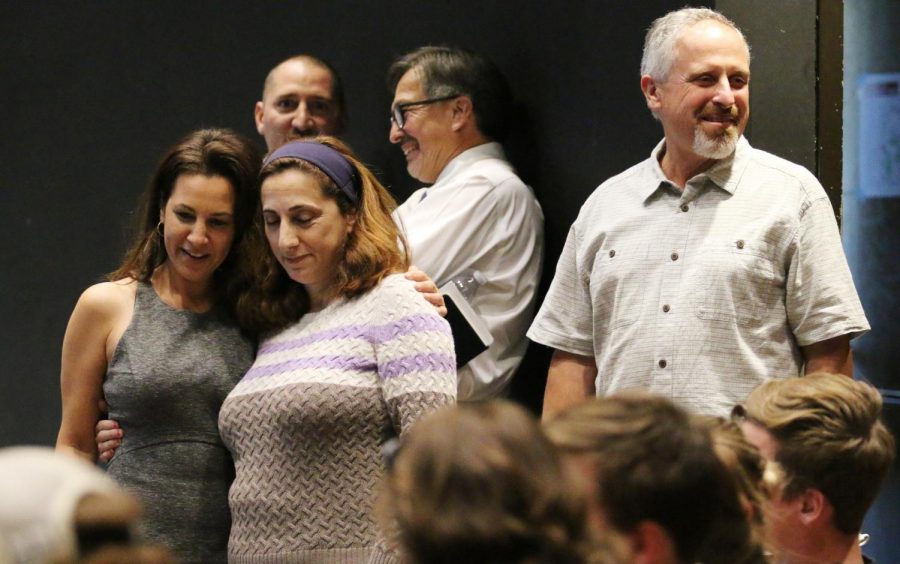
Eric Caldwell contributed to this report.

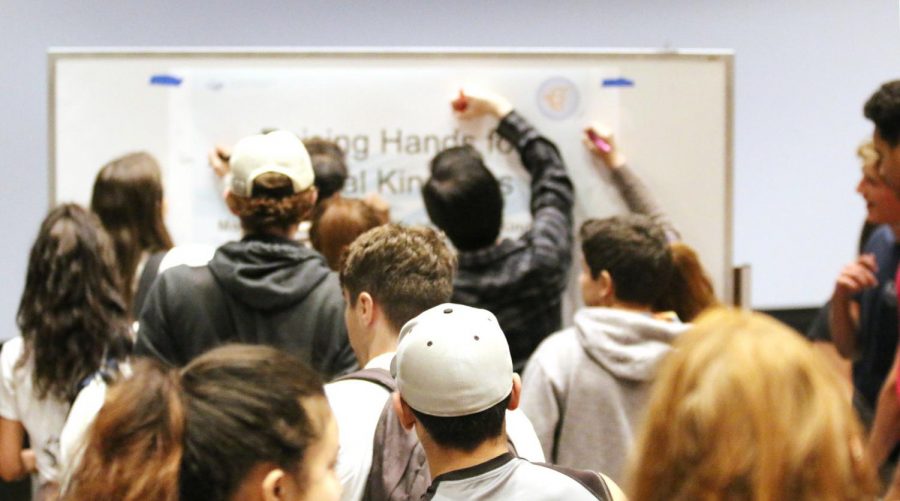
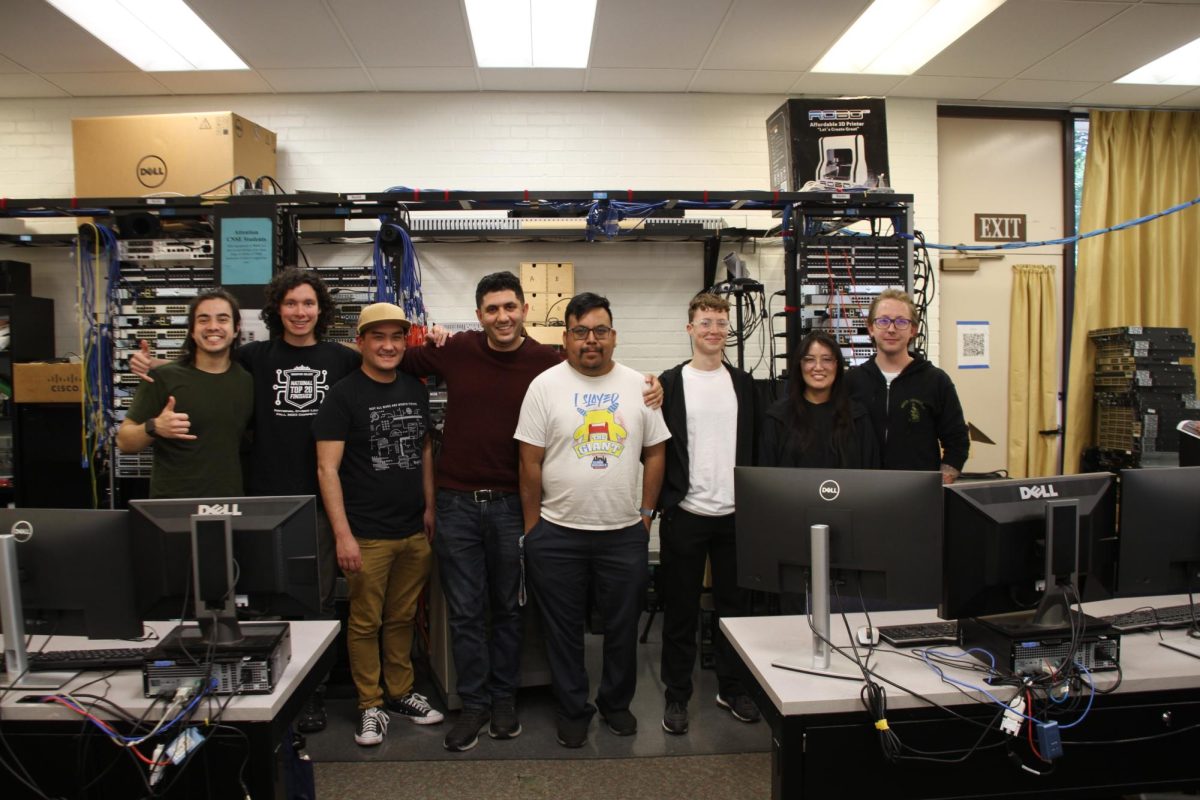

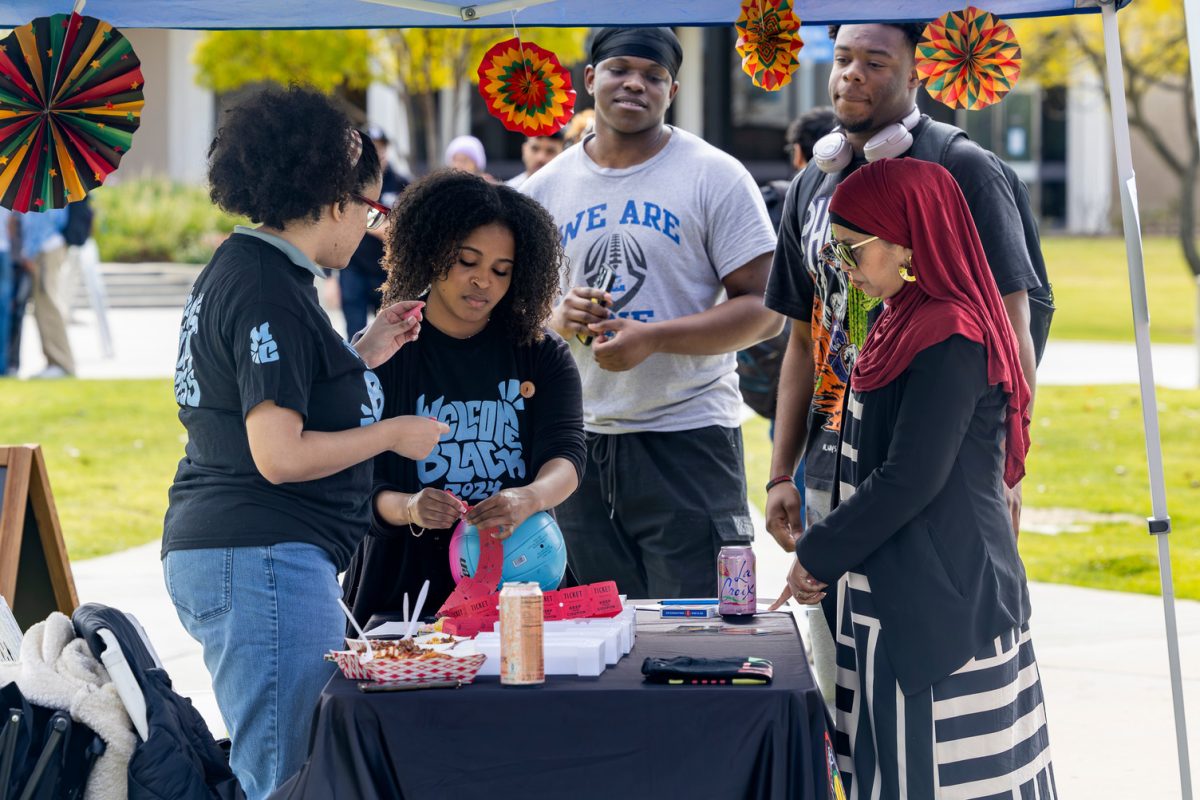




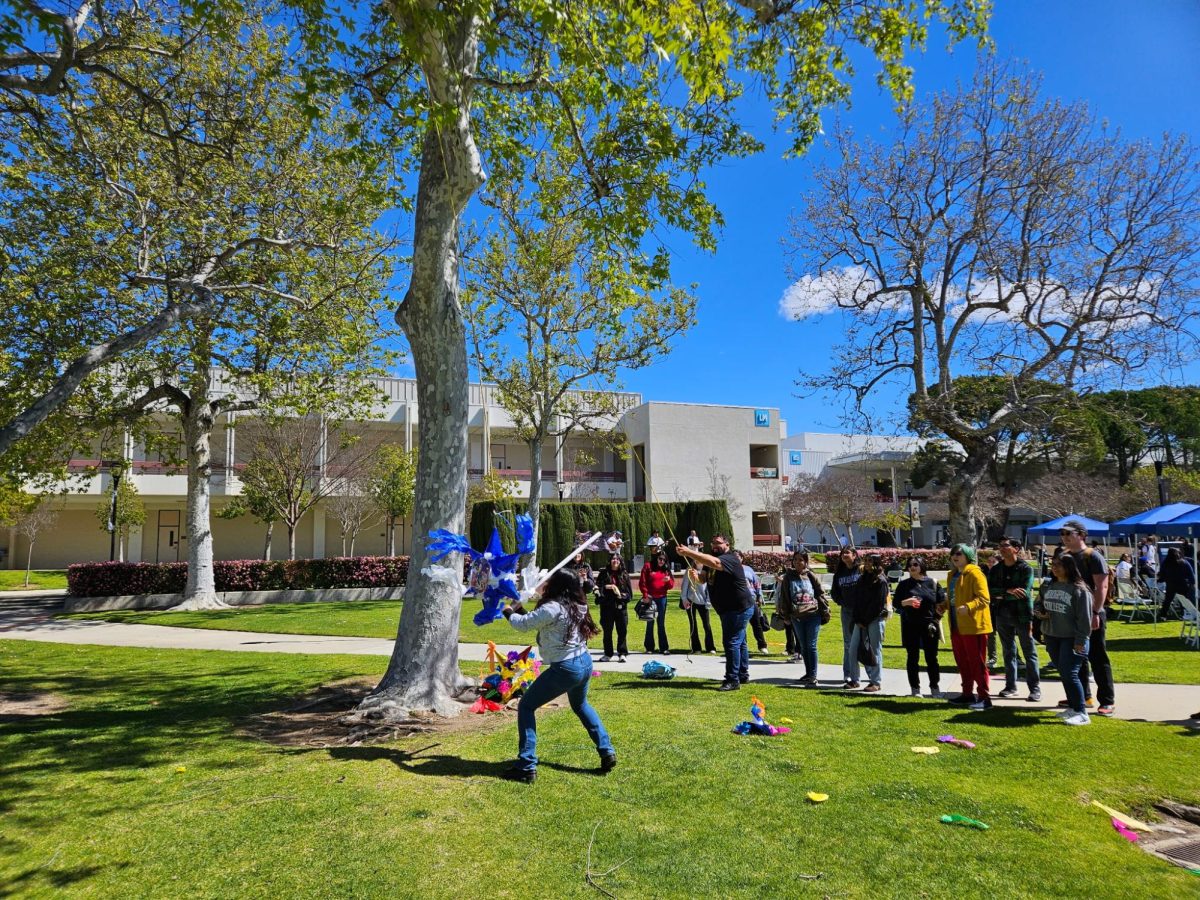





Dr. Amrit Singh • Nov 16, 2017 at 3 -08:00.11.
On Moore park student publication
This is very good do a presentation about interfaith and the Internet activity between the communities and especially education for the students by dr Kuldip singh. the founder of Sikhism was Guru Nanak was born in 1469 and that is how he used to communicate to the public to have discourses with the people of villages cities and in the world he period he travelled all over the world about 20,000 miles in his life and spread the word of a friendship for eternity equality and work on the principle of working hard and sharing with others this was a greater effort to buy more Park college.
Dr. Amrit Singh • Nov 15, 2017 at 3 -08:00.11.
This is very good do a presentation about interfaith and the Internet activity between the communities and especially education for the students period the founder of Sikhism was Guru Nana born in 1469 and that is how he used to communicate to the public to have discourses with the people of villages cities and in the world he period he travelled all over the world about 20,000 miles in his life and spread the word of a friendship for eternity equality and work on the principle of working hard and sharing with others this was a greater effort to buy more Park